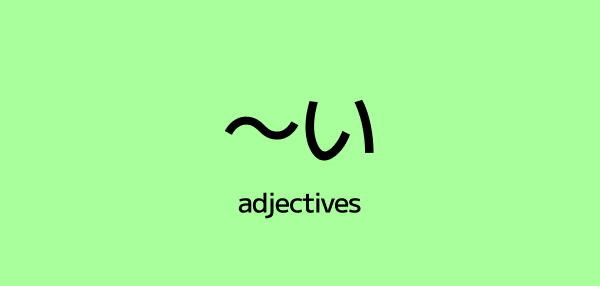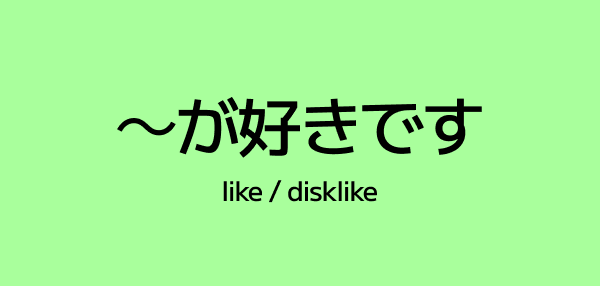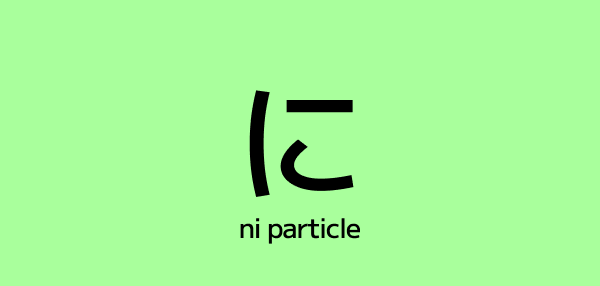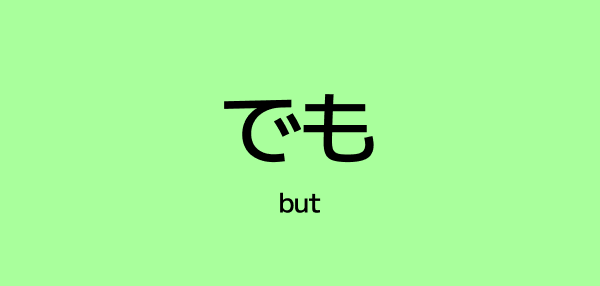い-Adjectives in Japanese – How to Use, Conjugate, and Modify

Adjectives are essential when you're learning to describe things in Japanese — like saying something is cheap, fun, or delicious.
In this guide, we’ll focus on い-adjectives like 高い (takai / expensive) and 安い (yasui / cheap), and show you how to change them into past, negative, and past-negative forms, step-by-step.
Let’s go!
What Areい-Adjectives?
い-adjectives are adjectives that end inい in their basic form.
Common examples:
- 高い(たかい)– high, tall, expensive
- 安い(やすい)– cheap
- おいしい– delicious
- たのしい– fun
- さむい– cold
- おもしろい– interesting
You can use them:
- Before a noun → おいしい ケーキ(delicious cake)
- At the end of a sentence → この ケーキ は おいしい(This cake is delicious)
How to Conjugateい-Adjectives
We’ll use 高い as our main example. Here's how to change it:
1. Present (Affirmative)
高い → "is expensive"
Example:このパソコンは高い。→ This computer is expensive. 😭
2. Present (Negative)
Changeい→くない
高い→高くない → "is not expensive"
Example:このかばんは高くない。→ This bag is not expensive. 😏
3. Past (Affirmative)
Changeい→かった
高い→高かった → "was expensive"
Example:
あのホテルは高かった。→ That hotel was expensive. 🥲
4. Past (Negative)
Changeい→くなかった
高い→高くなかった → "was not expensive"
Example:このレストランは高くなかった。→ This restaurant wasn’t expensive. 😎
You Can Addですfor Politeness
All of these forms can be made polite by adding です to the end.
Examples:
- 高いです。→ It’s expensive (polite)
- 高くないです。→ It’s not expensive
- 高かったです。→ It was expensive
- 高くなかったです。→ It wasn’t expensive
Try It With Otherい-Adjectives
Let’s try these with 安い(cheap) and おもしろい(interesting):
安い(やすい/ cheap)
- やすい→やすくない→やすかった→やすくなかった
= cheap → not cheap → was cheap → wasn’t cheap
おもしろい(interesting)
- おもしろい→おもしろくない→おもしろかった→おもしろくなかった
= interesting → not interesting → was interesting → wasn’t interesting
Practice Time!
Practice 1: Conjugate the Adjective
Try conjugating たのしい(fun) into each of these:
- Present negative →たのしくない
- Past affirmative →たのしかった
- Past negative →たのしくなかった
Practice 2: Translate These Sentences
- This movie is interesting.
- That car wasn’t cheap.
- Today is not cold.
- The festival was fun.
Answers:
- このえいがはおもしろい。
- あのくるまはやすくなかった。
- きょうはさむくない。
- おまつりはたのしかった。
Just for Fun… Slang & Common Adjectives
Now that you’ve got the basics down, here are some super common and expressive adjectives you'll hear all the time in daily conversation, anime, or scrolling TikTok in Japanese.
These aren't your textbook adjectives — they’re the ones people actually say.
ヤバい(yabai)
Originally meant “dangerous,” but now it can mean almost anything: amazing, terrible, cool, awkward, crazy — you name it. It all depends on the tone and situation.
Conjugated Forms:
- ヤバくない→ not crazy / not bad
- ヤバかった→ was crazy / was wild
- ヤバくなかった→ wasn’t bad / wasn’t a big deal
Examples:
- この ラーメン、ヤバい。→ This ramen is insane (in a good way)!
- きのう の パーティー、ヤバかった。→ Yesterday’s party was wild.
- テスト、ヤバくなかったよ。→ The test wasn’t as bad as I thought.
When in doubt, yabai is an easy go-to word. (Caution: overuse makes you sound like you lack other vocabulary.)
すごい(sugoi)
Means “amazing,” “awesome,” or “incredible.” Very common in positive reactions or compliments.
Conjugated Forms:
- すごくない→ not amazing
- すごかった→ was amazing
- すごくなかった→ wasn’t great
Examples:
- この アプリ、すごいね!→ This app is awesome!
- あの えいが、すごかった。→ That movie was incredible.
- きょう の イベント、すごくなかった。→ Today’s event wasn’t that great.
Can also be used with nouns: e.g.すごいひと→ an amazing person
ださい(dasai)
A slangy way to say something is uncool, lame, or tacky. Commonly used in casual teasing. Can be shortened to a quick "ださっ!"
Conjugated Forms:
- ださくない→ not lame
- ださかった→ was lame
- ださくなかった→ wasn’t lame
Examples:
- その ジャケット、ださいよ〜。→ That jacket is lame!
- まえ の かれし、ちょっとださかった。→ My ex-boyfriend was kind of uncool.
- この デザイン、ださくない?→ Isn’t this design kind of tacky?
Be careful, this one can sound rude if used seriously. Play nice!
🚨 Note: Don’t use these in formal situations (like with your boss or teacher). But they’re great for understanding everyday Japanese!
Final Recap
Here’s how to recognize and changeい-adjectives:
- They end inい
- To say "not ___", changeい→くない
- To say "was ___", changeい→かった
- To say "was not ___", changeい→くなかった
- Add です to make it polite
Now you can describe people, food, places, and experiences, past and present, all in natural Japanese!
Related Grammar
 E Rank
E Rank~が好きです – How to Say You Like (or Dislike) Something in Japanese
 E Rank
E RankThe に (Ni) Particle
に marks time, direction, location, purpose, and more. Learn how it works—and where learners go wrong.
 E Rank
E RankThe も (Mo) Particle
The particle 「も」 in Japanese is your go-to for saying “also,” “too,” or “not even.”
 E Rank
E RankHow to Use でも (demo) – “But” in Japanese
